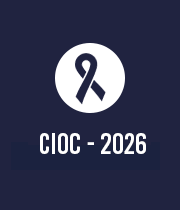Title : Electrochemical point-of-care sensor for early diagnosis of Ovarian Cancer
Abstract:
Ovarian cancer (OC), the most lethal gynecological cancer, globally causes 150,000 deaths, annually. Notably, the 5-year survival rate is generally accepted to be over 90% if the disease is detected at Stage 1. The well-known currentCA-125diagnostictestforOChasbeenshowntoyieldbothfalsepositiveandnegativeresults,andisnotnormally employed to detect the disease at an early Stage. Accordingly, there is a prescient requirement for the introduction of a low-cost screening testthatis rapid, sensitive and selective, and that can be applied on a large-scale basis.In this regard, we have developed a simple, precise, and low-cost screening test using an electrochemical technique to fabricate a point-of-care testing (POCT) device for early detection of OC. The device detects lysophosphatidic acid (LPA), a highly promising biomarker, which has been observed to be elevated in 90% of stage I OC patients, and gradually increases as the disease progresses to later stages. This is achieved via a recognition probe, gelsolin, immobilized on medicalgrade stainless-steel electrodes. The detection technology is based on electrochemical impedance spectroscopy (EIS), whereby three-electrode setup is employed which consists of a working electrode, counter electrode, and reference electrode. The working electrode is modified to provide the recognition surface. The main challenge in developing such a tool is overcoming the ubiquitous, problematic phenomenon known as non-specific adsorption (NSA), which is due to the fouling of non-target molecules in target biological fluid on the recognition surface of the device. To overcome NSA, we have used a proprietary strategy using silane-based interfacial chemistry to modify the stainlesssteel electrodes. Research on the technology to date has demonstrated that LPA can be detected in serum at the micromolar level. In collaboration with Princess Margaret Hospital, Toronto tests on patient samples are planned.



